Christine Valters Paintner's Blog, page 73
January 1, 2020
Embracing Mystery in the New Year: Ten Essential Practices
Dearest monks, artists, and pilgrims,
Who doesn't love the promise of new beginning the New Year offers? St. Benedict described his Rule as a Rule for beginners, reminding us to always begin again. In Buddhism, an essential practice is beginner's mind. When we think we have become an expert at things, especially the spiritual life, we are in trouble.
Living into the mystery of things helps us to release our hold on needing to know the answers. One of the things the monk and artist have in common is a love of mystery, a willingness to sit in the place of tension and paradox until it ripens forth.
New Year's resolutions often come from a place of lack, or of thinking we know how to "fix" ourselves. Unfortunately, they are often fueled by a consumer culture that is eager to have us buy more and more things to improve ourselves. Embracing mystery, on the other hand, honors our profound giftedness and depth and acknowledges that coming to know ourselves and God is a lifetime exploration.
So my invitation to you, dear monks and artists, is to shift your thinking this year. Welcome in ambiguity. Learn to love the holy darkness of mystery. Dance on the fertile edges of life. Let what you love ripen forth.
1. Breathe deeply – our breath is our most immediate and vital connection to the life force which sustains us moment by moment. Let yourself be filled with awe and wonder at the marvels of this intimate gift. Sit for three minutes savoring that you are breathed into.
2. Embrace night wisdom – one of the great gifts of dreams is that they upend our desire for logic and immerse us in a narrative which reveals the shadows we must wrestle with and the joys which call to us, whether or not they make sense to the waking world.
3. Dance freely– we live so disconnected from our bodies. Dance has been part of human culture for thousands of years as a way to experience union with ourselves, one another, and the divine. Each day put on one piece of music that you love, close the door, and dance. Pay attention to what rises up in the process. If you resist, even better – dance with your resistance!
4. Follow the thread– each of us has a unique unfolding story and call in this world. We don't "figure this out" but rather we allow the story to emerge in its own time, tending the symbols and synchronicities which guide us along.
5. Trust in what you love– following the thread is essentially about cultivating a deep trust in what you love. What are the things that make your heart beat loudly, no matter how at odds they feel with your current life (and perhaps especially so)? Make some room this year to honor what brings you alive.
6. Let the rhythms of nature guide you– we live our lives in a constant state of stimulation and productivity. We are often exhausted and overwhelmed. When we turn to the natural world we find with each day, each moon cycle, and each season a rhythm of rise and fall, fullness and emptiness. Trying to live all the time in rising or fullness is exhausting. Make some time to embrace the falling and emptiness of life which immerses us in an experience of mystery.
7. Release what is no longer necessary– we accumulate so many things in our days, perhaps you have discovered at Christmas that you have a new pile of stuff which now requires energy to maintain or worry about. Reflect on what is most essential. Then ask yourself, what are the thoughts, attitudes, or expectations about life which keep you from freedom? How do you try to control the direction of your life rather the yielding to grace?
8. Remember that you will die– St. Benedict writes in his Rule to "keep death daily before your eyes." This is never an act of morbid obsession, but a reminder of life's incredible gift. Any of us who have brushed near death, or had loved ones pass away, know this wisdom in profound ways. This is another paradox of the spiritual life: a vibrant relationship to our mortality is essential to a vibrant relationship to life.
9. Ask for the wisdom of your ancestors– each of us is the inheritor of generations of stories which beat through our blood. Each of us has mothers and fathers, grandmothers and grandfathers, who wrestled mightily with living a meaningful life. We can call upon this great "cloud of witnesses" to support us in our own wrestling. We can listen across the veil between worlds.
10. Open yourself to receiving a word for the year ahead– in quiet moments what are the desires you hear being whispered from your heart? Is there a word or phrase that shimmers forth, inviting you to dwell with it in the months ahead? Something you can grow into and don't fully understand?
Imagine if your New Year's wasn't about fixing or improving, but about deepening and transforming, about embracing the holy mystery at the heart of the world.
What if the year ahead wasn't about growing more certain about things, but about releasing the hold of your thinking mind so something deeper and more fertile could rise up?
What might bloom from such rich soil of your imagination? How might you create an altar for an unknown God and for the unknown depths of your own beautiful being waiting to be freed?
December 21, 2019
Monk in the World: Kinship with Creation 4 – Guided Meditation + Audio
Dearest monks, artists, and pilgrims,
During this Jubilee year of sabbatical we are revisiting our Monk Manifesto by moving slowly through the Monk in the World retreat materials together every Sunday. Each week will offer new reflections on the theme and every six weeks will introduce a new principle.
Principle 4: I commit to cultivating awareness of my kinship with creation and a healthy asceticism by discerning my use of energy and things, letting go of what does not help nature to flourish.
Read or listen to the guided meditation.
https://abbeyofthearts.com/blog/wp-content/uploads/2019/12/4-Kinship-with-Nature-Monk-in-the-World-Contemplative-Walk.mp3
 Contemplation is "a long, loving look at the real."
Contemplation is "a long, loving look at the real."
This is a slow contemplative walk. Do not be in a hurry. Allow it to take its own shape (you don't need to walk a long distance, perhaps only a few feet.)
Take some time to center yourself before beginning. Connect to the rhythm of your breath. Bring yourself fully present to the invitation of this moment in time and allow your walk to unfold in this way, without a particular goal or destination, simply listening for what is calling to you next.
As you begin the walk notice what is capturing your attention. See if there is something in nature that wants you to spend some time with it simply being present to its wisdom. Spend some time pondering its gift to you.
Pause every few steps and look around you. Notice what lies in the path before you. Listen for what your body is saying.
When you encounter something you find especially beautiful, take time to meditate with gratitude on it, appreciating all of its qualities of beauty, how it simply is what it was created to be. Allow yourself to fill with joyful gratitude for the gifts of the earth. Open yourself to experience the fullness of this creation and all of the ways God delights in the beauty of it.
Then shift your focus from the creation to yourself. Take this sense of wonder and awe at the beauty of the natural object and imagine how God gazes with delight on the beauty of who you are. What aspects of your being can you imagine God relishing? What are the longings inside of you God is asking you to embrace?
Rest in this awareness of the joy and delight of God in your own beautiful blossoming for several minutes. Notice what new longings it stirs in you.
As you near the end of your time, take a few moments to notice what are the inner invitations you have experienced? What has the Creator been saying to you through creation?
Simply dwell in silence allowing your heart to fill with gratitude for whatever has been revealed. As you walk, listen.
With great and growing love,
Christine
Christine Valters Paintner, PhD, REACE
Photo © Christine Valters Paintner
December 14, 2019
Monk in the World: Kinship with Creation 3 – Reflection + Audio ~ A Love Note from Your Online Abbess
Dear monks, artists, and pilgrims
During this Jubilee year of sabbatical we are revisiting our Monk Manifesto by moving slowly through the Monk in the World retreat materials together every Sunday. Each week will offer new reflections on the theme and every six weeks will introduce a new principle.
Principle 4: I commit to cultivating awareness of my kinship with creation and a healthy asceticism by discerning my use of energy and things, letting go of what does not help nature to flourish.
Read on or listen to the audio version of the reflection.
https://abbeyofthearts.com/blog/wp-content/uploads/2019/12/4-Monk-in-the-World-Kinship-with-Creation.mp3
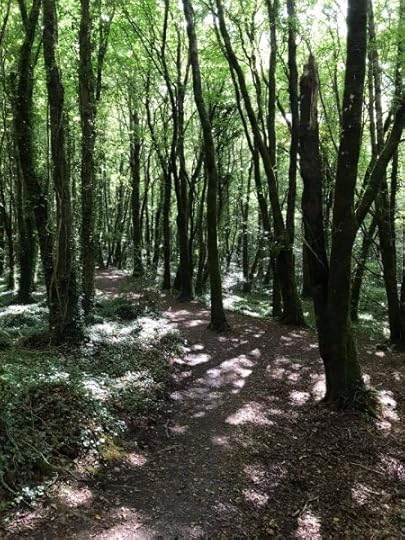 Nature is such a source of solace for many of us. Imagine a place right now where you have gone to rest in the grace of the world and experienced freedom and the peace of wild things. Breathe in the beauty of this memory.
Nature is such a source of solace for many of us. Imagine a place right now where you have gone to rest in the grace of the world and experienced freedom and the peace of wild things. Breathe in the beauty of this memory.
Consider that Creation is the original icon revealing the face of the Holy
Nature is a holy text for me, an icon, a window to the divine presence at work in the world. Just as we spend time gazing upon an icon or our beloved, we can also allow our gaze to be drawn to nature, this most holy and splendid of sights. I can spend hours meditating with ocean waves lapping the shore, contemplating the ancient witness of grand red cedar trees, delighting in geese flying in patterns of support.
Gazing is an act of loving reverence, a perspective that opens me up to transformation. Icon spaces invite me to linger, to relish, to admire. I imagine those ancient poets who wrote the psalms of creation, celebrating God's grandeur and mystery. Nature is an icon that slowly shifts beneath my gaze, revealing a God who is constantly creating. From this viewpoint, I become aware of a holy presence, the Great Artist, at work in the world around me, and I begin to connect deeply to the divine slowly at work within me, crafting and shaping my life, inviting me here this day to sit in stillness and witness to the beauty of the world.
The creatures and trees are spiritual teachers
"Believe me as one who has experience, you will find much more among the woods then ever you will among books. Woods and stones will teach you what you can never hear from any master."— Saint Bernard of Clairvaux
In ancient tradition, there were often holy men and women who were described as having a special relationship to animals. St. Benedict, for example, befriended a crow who was later said to have saved his life. It was said of St. Kevin that an otter would sometimes bring him salmon from the lake so he could eat. These special connections and relationships to animals were once a sign of holiness.
In one of his letters, Thomas Merton wrote that this is what the ideal monastic life is all about: "The monk here and now is supposed to be living the life of the new creation in which right relation to all the rest of God's creatures is fully restored." As monks in the world we live the life of the new creation in which right relationship to all creation is restored. We are not anticipating its arrival, but living its becoming.
My own dogs have been my spiritual directors, each one with their own unique wisdom to impart. Our last dog Petunia we referred to fondly as the Abbess of our Abbey. Winter, our dog now, I call Amma Winter sometimes because her difficult past reminds me of the struggles of the desert mothers and fathers who were called ammas and abbas. Perhaps you have a wise animal companion as well.
The elements are spiritual directors
These elements of earth and fire, water and wind offer us wisdom and guidance, they are the original soul friends.
Contemplate for a moment the gifts of the four elements.
Air is the gift of breath we receive in each moment, the rhythm of life sustaining us.
Fire is the gift of life force and energy and we might call to mind John of the Cross' image of God as the living flame of love which burns in each of our hearts.
Water is the gift of renewal and replenishment and we might call to mind the ritual of baptism as a call to claim our full gifts.
Earth is the gift of groundedness and nourishment. The elements at the communion table emerge from the earth, the act of eating is sacred and holy, also sustaining our life and work.
The mountains and flowers are the Saints
Thomas Merton again writes: "The bass and trout hiding in the deep pools of the river are canonized by their beauty and their strength. The lakes hidden among the hills are saints, and the sea too is a saint who praises God without interruption in her majestic dance."
The poet David Whyte has this beautiful line in one of his poems where he asks, "why are we the one terrible part of creation privileged to refuse our own flowering?" The animals and the elements live their fullness without holding back and in them we can discover what it truly means to become a saint.
The seasons are our scripture text
"This earth we are riding keeps trying to tell us something with its continuous scripture of leaves." – William Stafford (poet)
Much of my work is centered around the wisdom that attending to each of the four seasons can offer to us. In monastic tradition, even the day has its season with the movement from dawn to day to dusk to dark. Spring invites us to blossom forth, summer calls us to our own ripening, autumn demands that we release and let go, and winter quietly whispers to us to rest, to sink into the dark fertile space of unknowing, releasing the demands of productivity and calendars and to do lists and to simply be.
Forests are the original cathedrals and mosques
"Groves of redwoods…are often compared to the naves of great cathedrals: the silence; the green, filtered, numinous light. A single banyan, each with its multitude of trunks, is like a temple or mosque—a living colonnade. But the metaphor should be the other way around. The cathedrals and mosques emulate the trees. The trees are innately holy." –Biologist Colin Tudge, Secret Life of Trees
I love this image, the cathedrals we build reflect the sacred spaces that trees create. Next time you are in the forest, imagine this space as one of the original churches or sanctuaries, what has helped inspire the creation of thousands of spaces of sanctuary.
Our liturgy arises from the original hymn of creation
In the opening pages of Being Still: Reflections on an Ancient Mystical Tradition, Jean-Yves Leloup describes a young philosopher who comes to Fr. Seraphim to learn about prayer of the heart. Fr. Seraphim says that before he teaches him this way of prayer, he must learn to meditate like a mountain. He learned stability of posture and grounding from the mountain, the weight of presence, and the experience of calmness and stability. He entered into the timeless time of mountains and experienced eternity within and around him while also learning the grace of the seasons.
Next Fr. Seraphim sent him to learn how to meditate like a poppy taking his mountain wisdom with him. From the poppy he learned to turn himself toward the light and to orient his meditation practice from his inner depths toward radiance. The poppy also taught him both uprightness and the ability to bend with the wind. And while the mountain taught him about the eternal, the poppy taught him about the finitude of our days as the blossom began to wither. He learned that meditation means experiencing the eternal in each fleeting moment.
He was then sent to the ocean to learn the wisdom of ebbing and flowing. He learned to synchronize his breath with the "great breathing rhythm of the waves." As he floated on the sea he also discovered the great calmness of the sea below its undulating surface and he learned to hold awareness of his own distinct self without being carried away by the rhythm of breathing.
Fr. Seraphim finally had him learn to pray like a bird saying that the Prophet Isaiah (31:4, 38:14) describes meditation as the cry of an animal like a roaring lion or the song of a dove. The bird was to teach him how to sing continuously, repeating the name of God in his heart without ceasing. The invocation of the divine name led him to a deep place of stillness.
Earth and her creatures teach us how to pray, how to worship and praise.
These words come from Way of the Pilgrim (19hcentury Russian Orthodox text)
"And while I prayed in the depths of the heart, everything around me seemed transformed: the trees, grass, birds, earth, air, light—every created thing seemed to proclaim that bears witness to God's love for humanity. Everything was praying. Everything sang glory be to God"
When I go for my morning walk, I try to hold in my heart this image of joining together with the pigeons and the squirrels in the praise of creation. I am present to the trees and the crows as my abbas and ammas, my wisdom fathers and mothers. I sometimes ask for a word as I walk, and I listen for what is spoken to me. Creation is the foundation of my spiritual community, the matrix from which all of my work and loving are made possible. I remember that nature is the primary expression of divine artistry and that my commitment to the act of creating is in kinship with the world around me.
Each time you go for your walk, see if you can begin with a sense that you are stepping into a landscape that is animate and alive. We have separated ourselves from creation by claiming consciousness only for ourselves. Creation is the first scripture, offering wisdom to us with each turn. Claiming our inner monk means remembering that we are the children of the earth, and the earth is in our bodies. The rhythm we discover outside is also within. Remember the way that the breath offers us a microcosm of the seasons of each day and year.
Canadian Catholic Bishops wrote a beautiful letter about our relationship to the environment and they expressed three primary responses we should cultivate:
Contemplative, ascetic, and prophetic
Contemplative presence – spaciousness, relationship
Reclaiming a healthy asceticism – conversion, changing individual actions
Cultivating a prophetic vision – examining our collective impact
I believe when we begin with the contemplative it infuses our prophetic and ascetic responses and ground them in relationship and intimacy.
The monk in the world strives to live simply, so as not to be possessed by possessions, but also to live more lightly within creation, to remember that we are a part of the very earth matrix.
I want to close this section with a quote from the writer Dostoevsky:
"Love all God's creation, the whole and every grain of sand in it. Love every leaf, every ray of God's light. Love the animals, love the plants, love everything. If you love everything, you will perceive the divine mystery in things . . . When you are left alone, pray. Love to throw yourself on the earth and kiss it. Kiss the earth and love it with an unceasing, consuming love."
May your days ahead be filled with the unceasing consuming love of creation. And may you discover the deep truth that your freedom is intimately connected to the freedom and flourishing of all living things.
With great and growing love,
Christine
Christine Valters Paintner, PhD, REACE
Photo © Christine Valters Paintner
December 10, 2019
Monk in the World Guest Post: Jen Arendt
I am delighted to share another beautiful submission to the Monk in the World guest post series from the community. Read on for Jen Arendt's reflection, "A Whisper in the Wind."
As I sit in stillness in the sweet little oasis that I call my backyard, I am filled with joy to share the stirrings of my tender, grateful heart. Being outside, in God's creation, has a magical way of calling forth the deepest parts of my being. It's as if I truly come alive…it's where I am most at ease welcoming even the parts of me that are not that easy to welcome. It is here, softly resting amid the lilac trees, the hemlocks, and the daylilies…listening to little creatures sing and scurry…watching birds delightfully flit about…it is here that I know I am home. This gift of the natural world – this is where I am meant to be.
The "noise" of this modern life is often too much for this highly sensitive, deeply feeling woman to bear. Most of us know some version of this noise. Indeed the pitch, duration and intensity likely vary for each of us, but the commotion has become nearly impossible to avoid. Crawling into bed or curling into a ball with my hands pressed tightly over my ears are not sustainable solutions to escaping the chaos.
Instead, I step outside.
Now there is a different noise. Nature's noise. Oh how these sounds soothe and nourish my soul! I am transported, yet I am right here, right now. As the wind encourages the leaves to playfully dance on their branches, it breezes through me and whispers pure love. I believe it to be the Holy Spirit, reassuring me. It is all going to be alright.
I am with you. I am in you. Be still, my dear child. You are held. You are comforted. You are loved.
For as long as I can remember, even before I had words for it, I have felt called to be present in silence and solitude in God's creation. It's my soul's lifeline – the source of my heartbeat. On this morning, I do have words…
Early morning.
Not surrounded by walls, but by lush green creation.
An inviting calm permeates the air. Air that is sweet and mellow.
The stillness fills me, it is life-giving.
Tranquility softly settles into my being, taking up residence as if it knows it has found its true home.
Many have yet to wake. But the birds…the birds are singing their morning praises.
Songs filled with delight and expectancy. Their music encourages me to step into the fullness of me, to sing my song.
And sing I will – bravely, tenderly, joyfully – each note uniquely and lovingly composed by my creator.
As the world begins to stir, I will carry the early morning stillness with me…tucked safely into the gentle folds of my heart.
As my soul becomes increasingly nourished by God's creation, I am learning to shed false layers. It's a process that can be simultaneously painful and beautiful – as many journeys often are. With each encounter of wondrous nature, the light within me grows stronger. The glowing, the burning, of this amazing light is helping to dissolve the parts of me that no longer serve me…the dark parts of me that do not belong.
I am inching ever closer to discovering my true self…under the guidance of gentle sunrises, the birds' symphonies, a butterfly's playful flight. And though, as I travel along my path, I often falter, I only need to step outside to be reminded that I can do this…I am going to be OK.
A few years ago, I was walking through a pretty, peaceful little path that is covered by a canopy of mature trees. As I walked, I was struck by the way the sun was shining through that canopy. My heart was so filled that I felt compelled to stop and sit and write…I had to capture, right then and there, the gloriousness of the moment.
If you could see what I see, brilliant light dancing among the trees, you would know why my heart sings.
If you could hear what I hear, sounds so lovely and pure, you would know why my heart sings.
If you could feel what I feel, the warmth and the light so real, you would know why my heart sings.
The song has always been there – at times more faint than others. Let the music burst forth…let the light shine…life begins anew!
 Jen Arendt is a nature loving, deeply feeling, yet to be uncorked artist who feels most at ease amidst God's amazing creation. Her wonderful husband, her two beautiful kids and a few kindred spirits (a.k.a. her angel friends) are her faithful companions as she journeys towards uncovering her truest self.
Jen Arendt is a nature loving, deeply feeling, yet to be uncorked artist who feels most at ease amidst God's amazing creation. Her wonderful husband, her two beautiful kids and a few kindred spirits (a.k.a. her angel friends) are her faithful companions as she journeys towards uncovering her truest self.
December 7, 2019
Monk in the World: Kinship with Creation 2 – Scripture Reflection by John ~ A Note from your Online Abbot
 Dearest monks, artists, and pilgrims,
Dearest monks, artists, and pilgrims,
During this Jubilee year of sabbatical we are revisiting our Monk Manifesto by moving slowly through the Monk in the World retreat materials together every Sunday. Each week will offer new reflections on the theme and every six weeks will introduce a new principle.
Principle 4: I commit to cultivating awareness of my kinship with creation and a healthy asceticism by discerning my use of energy and things, letting go of what does not help nature to flourish.
Psalm 104:1-4, 14-23
God the Creator and Provider
Bless the Lord, O my soul.
O Lord my God, you are very great.
You are clothed with honour and majesty,
wrapped in light as with a garment.
You stretch out the heavens like a tent,
you set the beams of your chambers on the waters,
you make the clouds your chariot,
you ride on the wings of the wind,
you make the winds your messengers,
fire and flame your ministers.
You cause the grass to grow for the cattle,
and plants for people to use,
to bring forth food from the earth,
and wine to gladden the human heart,
oil to make the face shine,
and bread to strengthen the human heart.
The trees of the Lord are watered abundantly,
the cedars of Lebanon that he planted.
In them the birds build their nests;
the stork has its home in the fir trees.
The high mountains are for the wild goats;
the rocks are a refuge for the coneys.
You have made the moon to mark the seasons;
the sun knows its time for setting.
You make darkness, and it is night,
when all the animals of the forest come creeping out.
The young lions roar for their prey,
seeking their food from God.
When the sun rises, they withdraw
and lie down in their dens.
People go out to their work
and to their labour until the evening.
Background
As much as I love the Book of Genesis, there's no denying that the first few chapters have caused more than their fair share of controversy in recent decades. Too many people don't understand the creation myths. They try to put their own, modern interpretations onto them. The intention and methods of the original authors are ignored.
But that's part of what I love about Psalms of Creation. It is much more clear that they care little about the "when" of Creation and only care about the "how" in so far as the answer is God. So while some may incorrectly read Genesis 1 & 2 as historical or (worse yet) scientific, there is no mistaking that Psalm 104 is a beautifully creative poem. It is a poem that focuses, as do the creation myths it references, the "who" of Creation.
The opening line is in praise of God! The first stanza sets up the symbolic nature of its description of God's handiwork, both on earth and in the heavens. The next two stanzas follows the narrative arc of the creation myths, but with added praise to the Creator.
Finally, in verse 14, we move onto animal life. It's a beautiful transition. First the earth is described and then the plants that grow on it. These plants lead straight into the animals that graze upon it. And this, in turn, leads to humanity which is strengthened by all creation.
Just as the creation myths in Genesis lay out the orderly progression of a thoughtful and loving God, preparing the earth for us, Psalm 104 takes us step by step through Creation in order to show how great God is. The author is using Creation, including all the creatures, as evidence of God's love for us.
Reflection
Christine and I have always been "dog people." Our first pet was a cat (Isis) that we inherited when my father-in-law died and we certainly aren't anti-cat, but we've shared our homes and our lives with a number of dogs over the years. First, there was the gentle giant Duke. Next, was timid-but-loving Tune. And then there was wild-child Winter. Even when we moved overseas, we've managed to foster several rescue dogs over the Christmas holidays when the shelters close (Ginger Nut, Melba, and Sisi).
Most recently, we've taken in and adopted Sourney. Originally, she was another Christmas break foster. But, as dogs do, she won us over. She's quiet and sweet, with a mischievous side. She fits in very well. We joke that one of her grandparents must have been a cat, as she often needs time away on her own, just napping in a patch of sunlight by the window. Sourney is a great companion for the Abbey. She's well suited for apartment living.
But she's not completely domesticated. Sourney is still a creature of nature and that's her greatest contribution to our little family. Unlike Christine and I who can go days without venturing outside, Sourney needs to be out in nature, out in her element. And so, Sourney drags us (sometimes whinging and moaning) on walks along the canals and rivers of Galway. As humans born and raised in cities, who continue to live in the city, Sourney is our ambassador, our connection to the rest of Creation.
With great and growing love,
John
John Valters Paintner, MTS
December 3, 2019
Featured Poet: Mary C. Earle
Last spring we launched a series with poets whose work we love and want to feature and will continue it moving forward.
Our next poet is Mary C. Earle whose work is centered on embodied spirituality and aging. Read her poetry and discover more about the connections she makes between poetry and the sacred. Listen to her read "To Chama River Valley" below.
https://abbeyofthearts.com/blog/wp-content/uploads/2019/12/To-Chama-River-Valley.m4a
To the Chama River Valley
I want to lie down
on your rocky hillside
and pull your dark skin up over my body
like one of my grandmother's quilts.
I want to snuggle down
with the worms and the beetles
laying my flesh on your flesh,
skin to skin,
listening with a child's hopeful heart
for an ancient lullaby,
an even older rocking sway,
a tender whisper,
a kiss goodnight.
Themes of Her Work
I turned 70 last November, and around that time I began to be invited to speak about aging. This has felt to me like a sacred call, because I did not go looking for these assignments! It is, in part, a natural progression of my interest in embodied spirituality, and in the marvel that is our singular physical habitat—the body that is sacred gift. So, I'm attending to aging—of bodies, of the earth, of relationships, of my own gardens, of nations and political interactions. I'm noticing anew people who are fresh and fruitful into their 80s and 90s.
Obituary
When I lie down that last time
upon the folds of hill country earth,
I want to hear the cypress lullaby
as my bones let go.
I want cardinal praise, red and raucous,
filling the air
as my dust returns to dust.
I want the breeze that whistles down the creek bank
to gather up my ashes in its eternal song,
to gather and cast in one sweet movement,
scattering those atoms that were briefly mine,
into the soil as old as the hills.
The Soul Has Seasons
Like blackberry brambles the soul has seasons
when its leaves grow scarce.
Even then, a smallish body will find shelter there,
deer mouse chittering, or the tiny wren, piping its song.
For what, if not that singing, does the soul dare
a new season's greening?
Poetry and the Sacred
I have loved poetry since I was a young girl, in part because it sings. Even when there isn't a rhyme scheme, poetry is the fruit of us humans listening for the melody of the Great Song that sings everything into being. Poetry reminds us to listen. So, when I encounter a poem whose images and phrasing stir something within me, I am both listening to that Song, and invited to share its sacred melody.
So often a poem names something that I need to have named, or focuses my attention on something I've failed to see. I write in order to pay attention. I write poems so that I may know what I see. Poetry enhances the practice of mindfulness. Just yesterday I read "Small Kindnesses" by Danusha Lameris for the first time. That poem made me stop, give thanks, rejoice, and resolve to attend to small kindnesses.
Poetry reminds us that language is gift. The poet calls us to remember that language shapes action, and that how we see shapes what we see (as John O'Donohue observed). Reading and writing poetry invites me to be open and vulnerable, to receive and to bow before great Mystery.
On the Road to Bardsey Island
Something new and old flows in me here.
Something as fresh as springs in the rock.
Something as aged as this craggy coast.
Something as elemental
as it was in the beginning.
On the road to Bardsey Island,
I can hear the tromping of pilgrim feet.
I hear the prayers of many,
and I wonder at this holy band,
these saintly presences who walk with us,
telling their stories, urging us to see,
tugging at our hearts and souls
and reminding us that the news is good.
I feel roots sprout from my feet
and leaves bud just below the surface of my skin.
Sap begins to flow within,
coursing through scorched veins,
easing pain and inflammation,
bringing new life so sweet it almost hurts.
About Mary C. Earle
Mary C. Earle is a writer, poet, gardener, knitter, teacher and retreat leader. She lives in San Antonio, TX with her husband Doug, their border collie Fiona and cat Leftovers. She is the author of seven books and co-author of two. Her first book of poetry, "Do You Sing Your Own Song?", is forthcoming from Material Media Press in December 2019. For more about Mary and her work, check her website: MaryCEarle.com. To order Do You Sing Your Own Song? or any of Mary's books, click here>> . All of Mary's books are also available through Amazon.com and other online vendors.
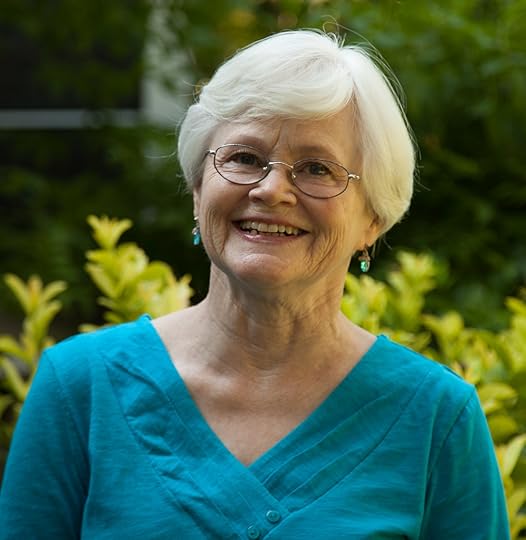
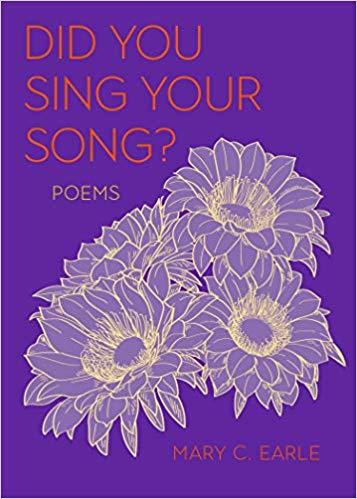
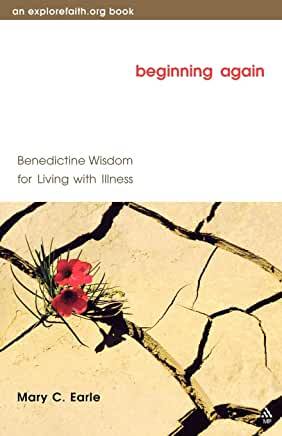

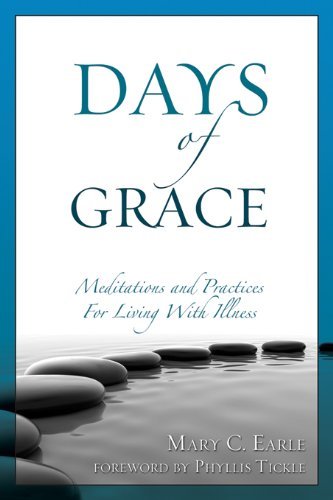
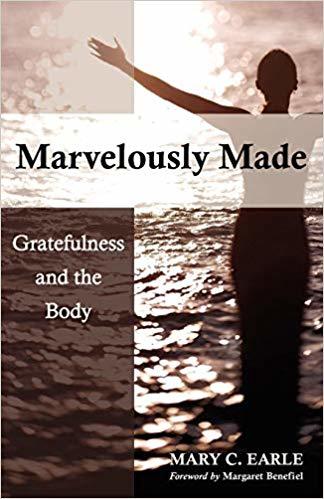
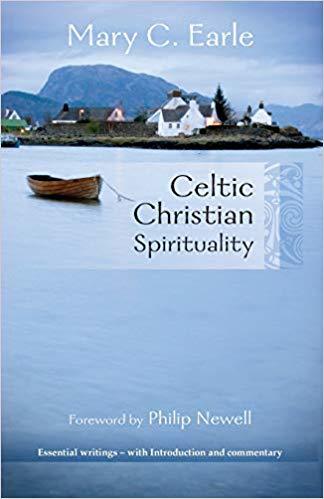
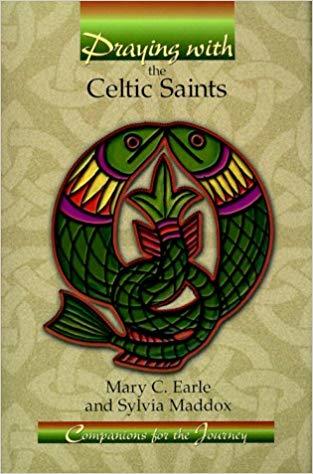
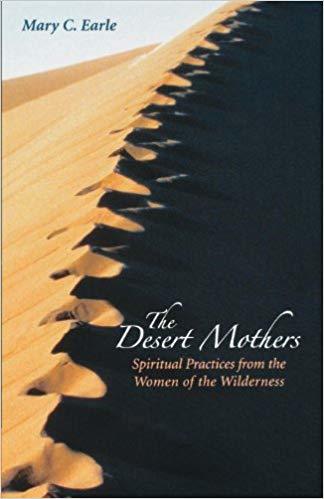

Dreaming of Stones
Christine Valters Paintner's new collection of poems Dreaming of Stones has just been published by Paraclete Press.
The poems in Dreaming of Stones are about what endures: hope and desire, changing seasons, wild places, love, and the wisdom of mystics. Inspired by the poet's time living in Ireland these readings invite you into deeper ways of seeing the world. They have an incantational quality. Drawing on her commitment as a Benedictine oblate, the poems arise out of a practice of sitting in silence and lectio divina, in which life becomes the holy text.
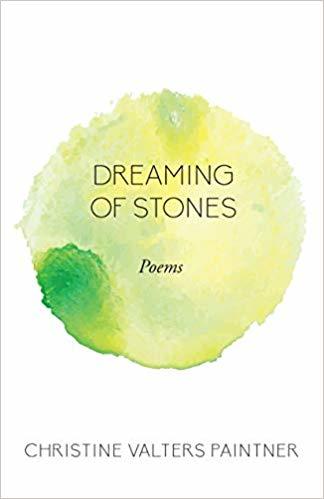
November 30, 2019
Monk in the World: Kinship with Creation 1 ~ Reflection by Christine
 Dearest monks, artists, and pilgrims,
Dearest monks, artists, and pilgrims,
During this Jubilee year of sabbatical we are revisiting our Monk Manifesto by moving slowly through the Monk in the World retreat materials together every Sunday. Each week will offer new reflections on the theme and every six weeks will introduce a new principle.
Principle 4: I commit to cultivating awareness of my kinship with creation and a healthy asceticism by discerning my use of energy and things, letting go of what does not help nature to flourish.
"How necessary it is for monks to work in the fields, in the rain, in the sun, in the mud, in the clay, in the wind: these are our spiritual directors and our novice-masters. They form our contemplation. They instill us with virtue. They make us as stable as the land we live in."
—Thomas Merton, The Sign of Jonas
Monastic life is a living out of the new creation. Thomas Merton wrote in one of his letters that this is what the monastic life is ideally all about: "the monk here and now is supposed to be living the life of the new creation in which right relation to all the rest of God's creatures is fully restored."
Creation is the matrix from which all of my work and loving in the world are made possible. I remember that nature is the primary expression of divine artistry and that my own creativity is an expression of the world's blossoming around me. I embrace a healthy ascetic practice shaped by a deep kinship with creation and I am committed to its flourishing.
One of the monastic practices I love most is praying the Hours as a way of becoming deeply aware of how each day rises and falls. As a monk in the world I am called to be fully present to the gifts and invitations of dawn, day, dusk, and dark. I am to remember that these are seasons of my own spiritual journey as well.
With great and growing love,
Christine
Christine Valters Paintner, PhD, REACE
Art © Kristin Noelle
Art Text: A shift was underway, separation fading. Stewardship becoming less duty or corporate obligation and something more like love.
Dancing Monk Icons on Sale!
From November 26 – December 5  if you buy two or more dancing monk prints by Marcy Hall of Rabbit Room Arts (also includes Marcy's other artwork), you'll get 20% off your order, plus free shipping anywhere in the US!
if you buy two or more dancing monk prints by Marcy Hall of Rabbit Room Arts (also includes Marcy's other artwork), you'll get 20% off your order, plus free shipping anywhere in the US!
Includes: Saints Benedict, Hildegard, Francis, Teresa, John of the Cross, Mary Mother of God, Amma Syncletica, Prophet Miriam, King David, Thomas Merton, Dorothy Day, Rainer Maria Rilke,
and Celtic Saints: Brigid, Brendan, Kevin, Patrick, Columcille, Dearbhla, Sourney, Gobnait, Ita, Ciaran, Colman, and Enda!
November 28, 2019
Give Me a Word 2020
In ancient times, wise men and women fled out into the desert to find a place where they could be fully present to the divine and to their own inner struggles at work within them. The desert became a place to enter into the refiner's fire and be stripped down to one's holy essence. The desert was a threshold place where you emerged different than when you entered.
Many people followed these ammas and abbas, seeking their wisdom and guidance for a meaningful life. One tradition was to ask for a word – this word or phrase would be something on which to ponder for many days, weeks, months, sometimes a whole lifetime. This practice is connected to lectio divina, where we approach the sacred texts with the same request – "give me a word" we ask – something to nourish me, challenge me, a word I can wrestle with and grow into. The word which chooses us has the potential to transform us.
What is your word for the year ahead? A word which contains within it a seed of invitation to cross a new threshold in your life?
Share your word in the comments section below by January 3, 2020 and you are automatically entered for the prize drawing (prizes listed below).
A FREE 12-DAY ONLINE MINI-RETREAT TO HELP YOUR WORD CHOOSE YOU. . .
As in past years, we are offering all Abbey newsletter subscribers a gift: a free 12-day online mini-retreat with a suggested practice for each day to help your word choose you and to deepen into your word once it has found you. Even if you participated last year, you are more than welcome to register again.
Subscribe to our email newsletter and you will receive a link to start your mini-retreat today. Your information will never be shared or sold. (If you are already subscribed to the newsletter, look for the link in the Sunday, December 1st email).
WIN A PRIZE – RANDOM DRAWING GIVEAWAY ENTER BY JANUARY 3rd!
5 people will win their choice of our self-study online retreats (with 15 to choose from!)
One signed copy of The Soul's Slow Ripening: 12 Celtic Practices for Seeking the Sacred by Christine Valters Paintner
One signed copy of Dreaming of Stones: Poems by Christine Valters Paintner
One signed copy of Earth, Our Original Monastery: Cultivating Wonder & Gratitude through Intimacy with Nature by Christine Valters Paintner (this book will be sent out in April 2020 once it is published)
So please share your word (and it would be wonderful to include a sentence about what it means for you) with us in the comments below.
Subscribe to the Abbey newsletter to receive ongoing inspiration in your in-box. Share the love with others and invite them to participate. Then stay tuned – on January 5th we will announce the prize winners!
November 26, 2019
Monk in the World Guest Post: Linda Parrington
I am delighted to share another beautiful submission to the Monk in the World guest post series from the community. Read on for Linda Parrington's reflection on being an instrument of good work.
Keep Death Before One's Eyes—Holy Rule of St. Benedict, 4:47
Mr. Smith is dying—actively dying. What a misnomer; Mr. Smith is not active at all. He is a deep shade of orange, cold and clammy to the touch. His legs and hands are mottled blue; his breathing is shallow, rapid and gurgling. He is not moving nor speaking.
It is my role as a chaplain for a local hospice that has brought me to Mr. Smith's home. My calling to serve humanity comes in the form of spiritual care. Over time, the concept of spirituality is taking front and center stage as more and more westerners claim no religious affiliation. My scope of practice includes offering a safe space where people may express themselves in terms of what matters most. What gives purpose and meaning to their lives? What is their understanding of transcendence? How do they articulate the fact that they are making eye contact with death?
I appreciate St. Benedict's edict to live life in the most ethical way while remaining mindful that the time spent on earth in our flesh-suit is fleeting. It is interesting to consider that this ancient sage placed his admonition, "To keep death before one's eyes daily," under the heading entitled, The Instruments of Good Works. Death before us is the motivation that compels us to be our best selves, to nurture relationships with others, and to be stewards of what the Creator has given us.
Mr. Smith's family gathers in the warm sun for a well deserved but short respite while I sit in the stillness of the bedroom. I wonder about this man; his family, his vocation. Photos of life's significant moments are carefully aligned on the walls revealing what is important to him. A wedding photo of a young, vibrant, beaming couple is surrounded by innumerable photos of babies, and then the babies of the babies. I whisper in Mr. Smith's ear, "You are loved. You are loving."
Mr. Smith's children have attended him at his deathbed night and day for the past week. The sacrifice of time, the most precious commodity of our post-modernist era, is offered to him by those who were nurtured by this man. It is an extraordinary gift these children give as they put their lives on hold in order to wipe the brow and bottom of their father in his last days. They too, keep death before their eyes.
Would it surprise you to learn that Mr. Smith is, in the words of his daughter-in-law, a raging alcoholic? I wait patiently to give space if she wishes to say more. I nod. This is a truth; Mr. Smith loved and was loved and yet he also hurt himself and wounded those closest to him. What a marvel that the children are here tenderly attending to their father and grandfather despite their experience of him as two-faced.
As a witness to death, I am also a testifier who affirms Mr. Smith's humanity. I consider how his goodness and failings are like mine. I cannot judge nor condemn since I am also more than just a mathematical equation of goodness and failings. He and I are sojourners on the road that leads to the same outcome—death ever before us. I reflect that when it is my turn, I wish to be attended by companions who understand that I do not need superfluous praise but honest acknowledgment that I did good, I did bad, and I am worthy of love.
I play a hymn using my phone and portable speaker listening for the Spirit's guidance as to what song to enjoy together. Today, Be Thou My Vision seems appropriate. The lilting prose fills the room and the mood lifts slightly. I whisper a blessing into Mr. Smith's ear, "May you experience the peace and love that comes from your life-giving source. May you feel the warmth of Our Creator's Sun in your sleeping and waking. May you find your authentic home."
Driving to my next visit, I offer a prayer of gratitude that I am granted the privilege to be an instrument of good work as St. Benedict instructed. Yes, I keep death before my eyes.
Be thou my shelter, be thou my stronghold.
Mayst thou raise me up to the company of the angels
Mary Byrne and Eleanor Hull
(Mr. Smith is a pseudonym)
 Linda Parrington, MDiv. is a recent graduate of Boston University School of Theology. Linda serves as a Hospice Chaplain, offering spiritual care for clients facing end of life and their families. She believes that listening with the heart is the way to affirm the spark of the Divine in each person.
Linda Parrington, MDiv. is a recent graduate of Boston University School of Theology. Linda serves as a Hospice Chaplain, offering spiritual care for clients facing end of life and their families. She believes that listening with the heart is the way to affirm the spark of the Divine in each person.



